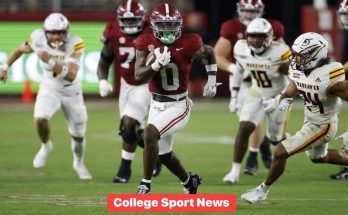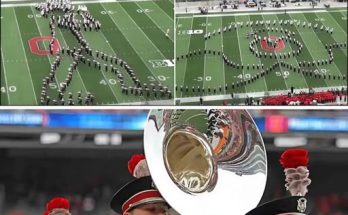Johnny Manziel was always more than just a quarterback. He was a cultural phenomenon, a wild ride of chaos and charisma wrapped up in a Heisman Trophy and NFL-level hype. From his electrifying days at Texas A&M to his turbulent stint in the NFL, “Johnny Football” was a headline waiting to happen. And once again, he’s making waves — this time with a brutally honest and unfiltered confession that has stunned fans, burned bridges, and reignited debates over one of the most polarizing careers in recent football memory. “I hated Cleveland,” Manziel admitted in a recent podcast appearance, a bombshell revelation that dropped like a grenade in the heart of Browns Nation.
The comment wasn’t tossed off lightly. It was filled with venom, exasperation, and the raw edge of personal pain. It’s not unusual for athletes to reflect on difficult periods in their careers, but for Manziel — who has long been associated with controversy, off-field antics, and wasted potential — this confession seemed like the final severing of whatever fragile thread still tied him to his NFL past. There was no sugar-coating it, no polite reframing. He didn’t say he struggled in Cleveland. He didn’t say it wasn’t the right fit. He didn’t even chalk it up to youthful mistakes or growing pains. He came right out and said it: he hated the place.
That kind of honesty has consequences. Cleveland was the team that took a chance on him, using a first-round draft pick in 2014 to secure what they hoped would be a franchise-altering talent. But instead of salvation, they got spectacle. Instead of leadership, they got headlines — often for all the wrong reasons. And now, with this confession, it’s as though Manziel himself has retroactively nullified the goodwill or hope that surrounded his arrival. It’s a slap in the face to Browns fans who stuck by him, even when it was clear the project was crumbling.
Manziel’s explanation painted a grim picture of his time in the NFL. He talked about depression. About being directionless. About being in a city where he never felt he belonged, in an organization he felt never fully understood him, and in a league that, in hindsight, he wasn’t ready for. While some of his comments came off as self-reflective and even sympathetic, the venom in his voice when referencing Cleveland was impossible to ignore. The experience, by his own admission, wasn’t just a bad fit — it was toxic.
His words might resonate with those who have followed his journey closely. From the outside, his time with the Browns seemed like a slow-motion car crash: inevitable and painful. There were the late-night partying stories, the missed practices, the supposed lack of dedication. Cleveland had invested in a superstar but ended up managing a crisis. There were brief flashes of brilliance — enough to tantalize, to tease at the potential still lying dormant — but those moments were rare and unsustained. It became painfully clear that Manziel was not the savior the franchise had hoped for.
But this latest revelation offers a deeper understanding of what may have fueled the dysfunction. Manziel’s hatred of Cleveland wasn’t just about the city or the weather or the media. It was about the isolation, the loss of purpose, and the feeling of being trapped in a situation that never fit. He admitted he wasn’t mentally prepared for the NFL — an admission that carries more weight now than it did then. He was thrust into a spotlight he didn’t know how to handle, handed millions before he knew how to manage them, and expected to lead a team before he knew how to lead himself.
In his own words, Manziel never wanted to go to Cleveland. He didn’t feel like he was in control of his destiny, and once there, he spiraled. That spiral included drinking, substance use, depression, and public meltdowns. And while he’s spoken before about the personal demons that haunted him, this was the first time he laid a portion of the blame so squarely at the feet of the Browns and their culture.
It’s tempting to label his comments as bitter or ungrateful. After all, the NFL gave him a platform, and Cleveland gave him a shot. But peeling back the layers reveals a young man who was drowning in expectations, scrutiny, and personal turmoil. And perhaps the most important takeaway from his confession isn’t about Cleveland at all — it’s about the larger failure of the NFL’s developmental system, especially for players coming in with high-profile backgrounds and emotional baggage.
Johnny Manziel wasn’t ready for the NFL, and the NFL wasn’t ready for Johnny Manziel. It’s easy to mock that in retrospect, to reduce it to memes and highlight reels of chaos. But it’s harder to sit with the uncomfortable reality that this was a young man dealing with serious mental health issues while being asked to lead one of the most desperate franchises in the league. That disconnect — between who he was and who he was supposed to be — may have been the true catalyst for his downfall.



